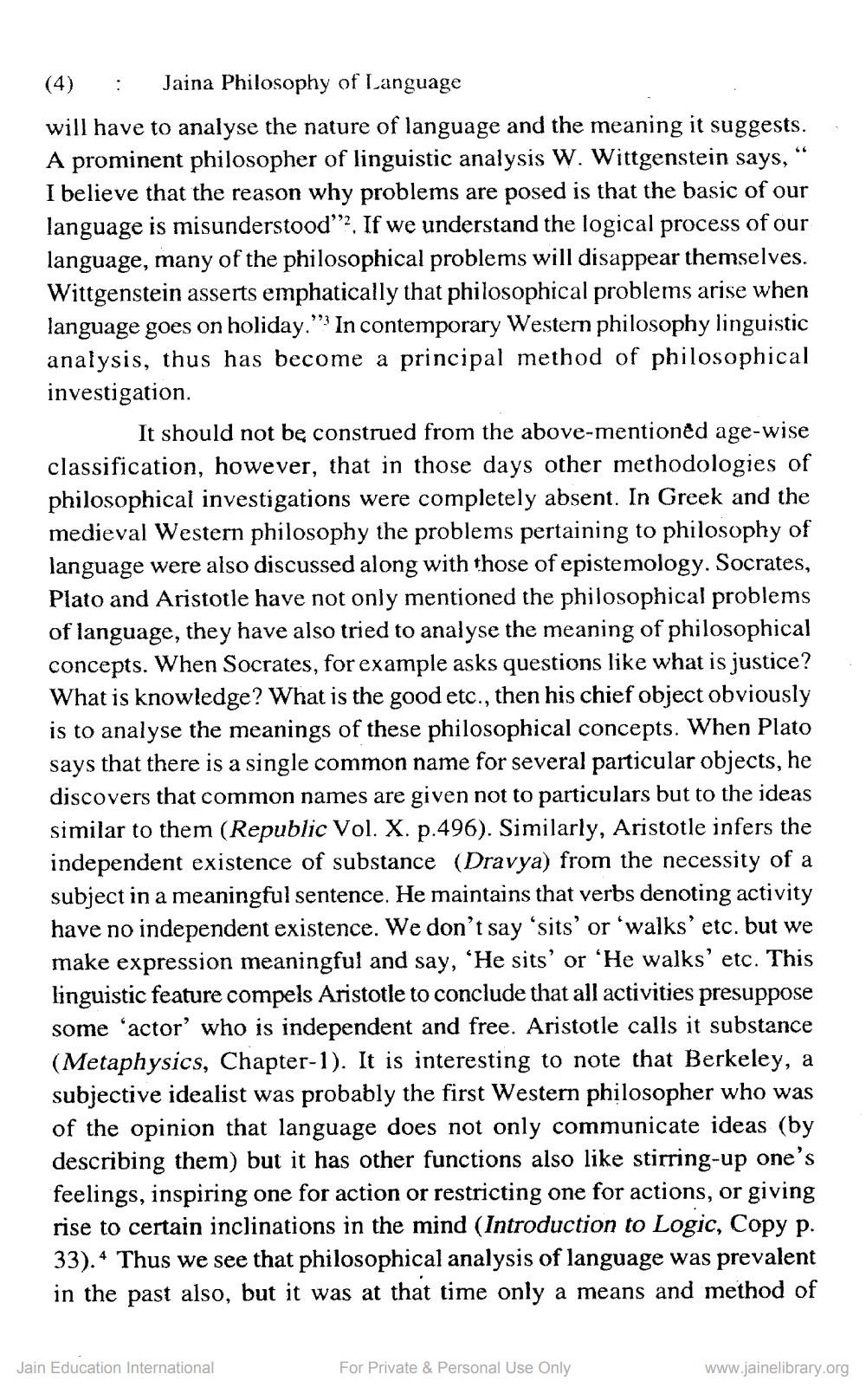________________
(4) : Jaina Philosophy of Language will have to analyse the nature of language and the meaning it suggests. A prominent philosopher of linguistic analysis W. Wittgenstein says, " I believe that the reason why problems are posed is that the basic of our language is misunderstood”?. If we understand the logical process of our language, many of the philosophical problems will disappear themselves. Wittgenstein asserts emphatically that philosophical problems arise when language goes on holiday."? In contemporary Western philosophy linguistic analysis, thus has become a principal method of philosophical investigation.
It should not be construed from the above-mentioned age-wise classification, however, that in those days other methodologies of philosophical investigations were completely absent. In Greek and the medieval Western philosophy the problems pertaining to philosophy of language were also discussed along with those of epistemology. Socrates, Plato and Aristotle have not only mentioned the philosophical problems of language, they have also tried to analyse the meaning of philosophical concepts. When Socrates, for example asks questions like what is justice? What is knowledge? What is the good etc., then his chief object obviously is to analyse the meanings of these philosophical concepts. When Plato says that there is a single common name for several particular objects, he discovers that common names are given not to particulars but to the ideas similar to them (Republic Vol. X. p.496). Similarly, Aristotle infers the independent existence of substance (Dravya) from the necessity of a subject in a meaningful sentence. He maintains that verbs denoting activity have no independent existence. We don't say ‘sits' or 'walks' etc. but we make expression meaningful and say, 'He sits' or 'He walks' etc. This linguistic feature compels Aristotle to conclude that all activities presuppose some 'actor' who is independent and free. Aristotle calls it substance (Metaphysics, Chapter-1). It is interesting to note that Berkeley, a subjective idealist was probably the first Western philosopher who was of the opinion that language does not only communicate ideas (by describing them) but it has other functions also like stirring-up one's feelings, inspiring one for action or restricting one for actions, or giving rise to certain inclinations in the mind (Introduction to Logic, Copy p. 33). 4 Thus we see that philosophical analysis of language was prevalent in the past also, but it was at that time only a means and method of
Jain Education International
For Private & Personal Use Only
www.jainelibrary.org




